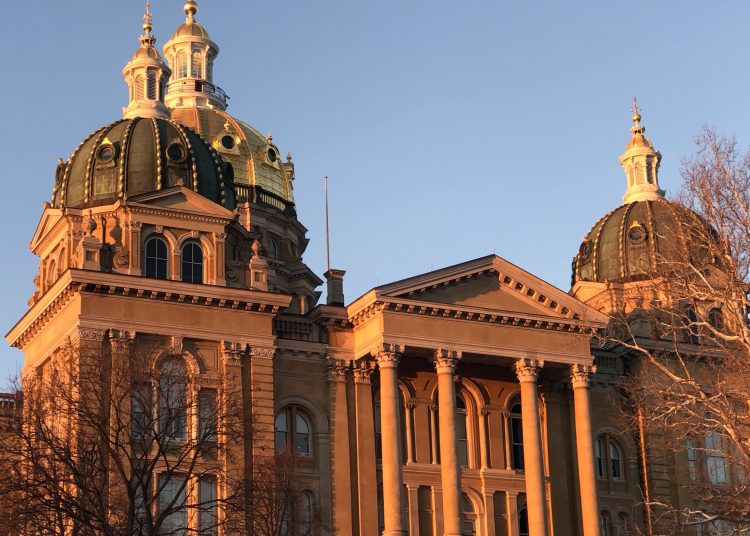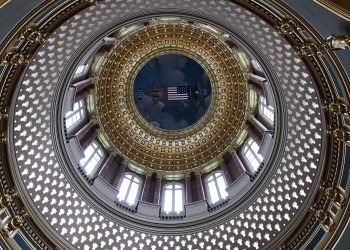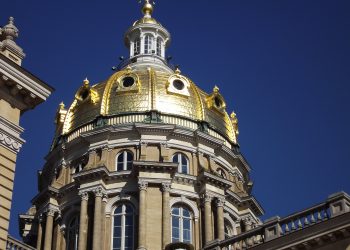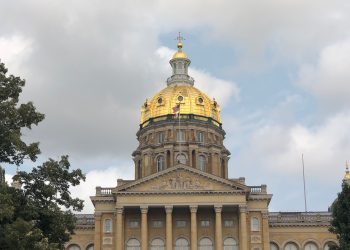DES MOINES, Iowa – The Iowa Senate on Tuesday approved a bill, HF 309, that prohibits state or municipal government agencies from requiring non-profit organizations to release personal information about members, donors, supporters, and volunteers. The bill will head to Gov. Kim Reynolds’ desk.
The bill also prohibits public agencies from releasing, publicizing, or disclosing information without the written permission of an organization’s members, donors, supporters, and volunteers. Public agencies under the bill are prohibited from requiring current or prospective contractors to provide a list of non-profit organizations they support.
HF 309 does not prohibit the disclosure of information under legal proceedings that are subject to proper warrants and discovery requests. The corporate filings by a non-profit organization with the Iowa Secretary of State office are not considered personal information. The bill does not change campaign finance disclosure requirements.
State Senator Craig Johnson, R-Independence, the bill’s manager in the Iowa Senate, explained the bill in his opening statement. There were no additional comments, so he moved the bill for a vote.
The bill passed 45 to 1. State Senator Julian Garrett, R-Indianola, was the only Senator to vote no.
Garrett told The Iowa Torch that he was concerned that the bill would give cover to people like George Soros and Mark Zuckerberg who come in to fund organizations to get out the vote, in particular, in counties with Democratic county auditors. He said he suggested a cap where donors who gave above that cap could be identified.
The Iowa House passed HF 309 by an 84 to 9 vote on February 23.
State Rep. Brian Lohse, R-Bondurant, was the bill’s manager, explained the bill and offered an amendment that exempted information provided to the Iowa Secretary of State office that was adopted by a voice vote.
State Rep. Christina Bohannon, D-Iowa City, then spoke in support of the bill.
“I support this bill. As Representative Lohse said, it does support and protect the freedom of speech and association of people to be a member of an organization. It also protects the privacy and safety, frankly, of people who give to unpopular causes, and for that reason, I do support the bill. I will say it’s in some ways a difficult question. There are issues of transparency. Some people worry about dark money and transparency and things like that with some of these organizations. And so I understand people might have some concerns like that. But for me, I really want to protect the First Amendment rights of association and speech of people who support these organizations,” she said.
She didn’t convince all of her caucus members, who recorded the only opposition to the bill in the Iowa House.
State Reps. Liz Bennett, D-Cedar Rapids, Mary Donahue, D-Cedar Rapids, Chris Hall, D-Sioux City, Steven Hansen, D-Sioux City, Charles Isenhart, D-Dubuque, Lindsey James, D-Dubuque, Monica Kurth, D-Davenport, Charlie McConkey, D-Council Bluffs, and Todd Prichard, D-Charles City, voted against the bill.
“Donors of various non-profit groups still faced some of the types of harassment and threats that were faced in the 1950s,” Lohse said during his closing remarks.
In 1958, the Supreme Court ruled in NAACP v. Alabama that Alabama’s Attorney General could not force the civil rights organization to disclose their donor list to a state that resisted their efforts to assert blacks’ civil rights across the Jim Crow South.
In recent years, donors to causes such as supporting California’s Proposition 8 were targeted for harassment and cancellation.
“Providing these entities and their donors this protection is vital,” Lohse concluded.
The bill found support across the ideological spectrum from One Iowa, The FAMiLY Leader, ACLU of Iowa, Iowans for Tax Relief, Iowa Safe Schools, Americans for Prosperity, Kirkwood Institute, Planned Parenthood, Iowa Association of Business and Industry, and the Philanthropy Roundtable, Homeschool Iowa, and Iowa Coalition Against Domestic Violence.
The only registered opposition came from the Iowa Attorney General’s office.
















